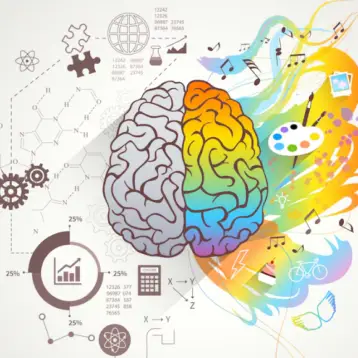
When you want something to make you feel energetic and pumped up, what do you listen to? How many people would listen to Cake’s the Distance or Motorhead’s Ace of Spades or hear Queen’s ‘We Are the Champions’ being played after a major victory? What about a trailer for an action movie released in the last few years, accompanied by a booming soundtrack? Or what about facing the final boss in a video game and using every skill you know to win while rousing music plays? It can feel intense and leave your senses feeling very heightened.
Of course, none of that is an accident. We all know that music has the power to make us feel certain emotions, but what most of us don’t know is that this goes far beyond the notes and chords and lyrics we hear – in fact, our brains pick up a myriad of signals that our ears miss, making music and sound a far more immersive experience than we give it credit for.
Whether you’re listening to music on speakers or headphones, the key to a full sound is in the quality of the bass. Music can still be catchy without it, but it can feel hollow, relegated to the background instead of being front and center of the experience. While it’s true that nobody pays attention to the bassist (sorry to all the bassists out there), instead of going for the more noticeable sounds from the lead singer or guitarist, but they play an integral role in how you feel the music, both emotionally and physically.
Why do we ‘feel’ bass?
For humans, our sense of hearing is said to range between the frequencies of 20Hz to 20,000Hz (Hertz). When frequencies go under 20Hz, we can’t pick out the sound itself – but our body can still detect it, or ‘feel’ it. The reason for this is because the pressure level of loud bass is much higher than when you hear the same volume of a mid-range sound. Even when our hearing can’t pick up on the sound, our body detects the waves of energy flying – and icky as it may sound, these cause our body parts to move around. And, much like the stomach lurch, we feel when we see the person we love, these movements feed directly into our emotions.
In the case of the bass, these specific movements make us feel powerful and assertive. It’s not a placebo effect either: Science Daily cites a report which found the prominence and level of bass in a song is a key factor in how powerful it makes a person feel. In the report ‘The Music of Power: Perceptual and Behavioral Consequences of Powerful Music’, the researchers took 31 pieces of music from several genres like sports music, hip-hop and reggae to see how powerful participants felt after listening to 30-second clips.
Some of these songs like Queen’s ‘We Will Rock You’ were rated as powerful, while the likes of Baha Men’s ‘Who Let the Dogs Out’ – perhaps unsurprisingly – scored significantly lower. By asking the participants to carry out tasks that measure illusion of control – such as rolling a dice – it found that the high-power music “evoked a sense of power unconsciously”. And just to be 100% certain, the researchers even ruled out lyrics as the cause, running a parallel test that showed the words had no similar impact.
But why?
Good question. One possible reason for why bass makes people feel more powerful is down to something called ‘contagion hypothesis’. The idea is that when you hear a specific music component that expresses a sense of power, you’ll mimic those feelings internally. This also suggests that the connection between a piece of music and an event can trigger powerful responses. To refer to an earlier example, Queen’s ‘We Are the Champions’ is usually played at the end of major sporting finals, eliciting feelings of winning and reward. To understand it, we must return to the question of how sound is felt – and here, as we explained, the frequency of sound is key.
We all got a rhythm
Believe it or not, your brain is naturally rhythmic, even when you’re not listening to music. According to NPR, when you’re thinking, your brain fires rhythmic electrical pulse called gamma waves, the speed of which depends on how focused your thinking is. And, as with so many other things in life, music plays a vital part in this process. To see how humans, detect rhythm, researchers at Canada’s McMaster Institute for Music and the Mind hooked participants up to an electroencephalogram – a device that records electrical activity in different parts of the brain – and played low- and high-pitched sounds at the same time.
What the team found was that “the brain was better at detecting when the lower tone occurred 50 milliseconds too soon, compared to when the higher tone occurred 50 milliseconds too soon” – or, in other words, it was easier to tell when the lower sound kicked in first. This essential finding explains why rock and pop music is constructed in the way it is, and why the lower register gives us that impassable urge to nod our heads, tap our feet, or get on the floor.
“There is a psychological basis for why we create music the way we do,” said neuroscientist and study co-author Laurel Trainor. “Virtually all people will respond more to the beat when it is carried by lower-pitched instruments”. So, the next time you want to feel powerful before a workout, presentation or event, stick on a pair of headphones or sit beside your best speakers – and crank up the volume. You’ll feel all the better for it – science says so.
Embrace the bass and feel the rhythm of the music with the huge range of Headphones, Speakers and other audio equipment from Arnotts. The latest from big name brands such as Bose, Sennheiser and Sonos are all available to choose from.










